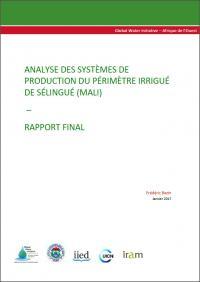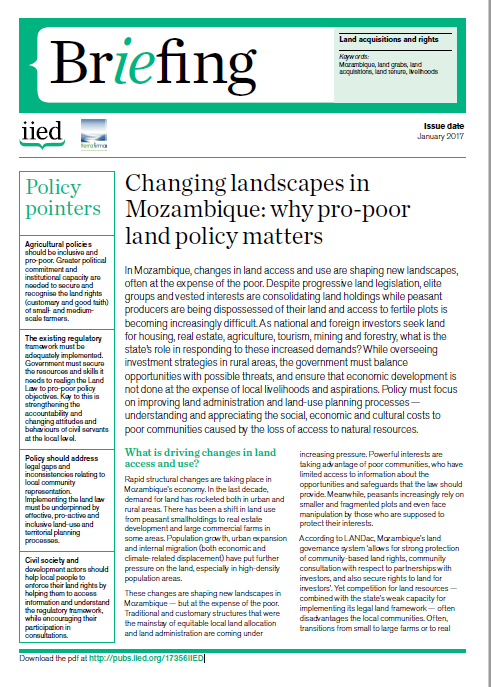Focal point
Location
Mission
Our mission is to build a fairer, more sustainable world, using evidence, action and influence in partnership with others.
Who we are
IIED is one of the world’s most influential international development and environment policy research organisations. Founded in 1971 by economist Barbara Ward, who forged the concept and cause of sustainable development, we work with partners on five continents. We build bridges between policy and practice, rich and poor communities, the government and private sector, and across diverse interest groups. We contribute to many international policy processes and frameworks, including the Intergovernmental Panel on Climate Change, the Millennium Ecosystem Assessment and the UN conventions on climate change and biological diversity.
What we do
IIED carries out research, advice and advocacy work. We carry out action research — generating robust evidence and know-how that is informed by a practical perspective acquired through hands-on research with grassroots partners — and we publish in journals and maintain high research standards. We advise government, business and development agencies, and we argue for changes in public policy. We focus on bottom-up solutions, stay open to flexible, adaptable solutions and are marked by a tradition of challenging conventional wisdom through original thinking.
Resources
Displaying 121 - 125 of 367Changing landscapes in Mozambique: why pro-poor land policy matters
In Mozambique, changes in land access and use are shaping new landscapes, often at the expense of the poor. Despite progressive land legislation, elite groups and vested interests are consolidating land holdings while peasant producers are being dispossessed of their land and access to fertile plots is becoming increasingly difficult. As national and foreign investors seek land for housing, real estate, agriculture, tourism, mining and forestry, what is the state’s role in responding to these increased demands?
Analysis of the productive systems in the Sélingué irrigation scheme (Mali)
The development of irrigation is one of the priority strategies in the Sahel countries to tackle poverty and food insecurity. At a time when governments are once again committing to increase irrigable areas, it seemed relevant to analyze, in line with the ECOWAS guidelines, the results achieved in large irrigated schemes developed in the 1980s and 1990s to draw lessons for future developments.
Analyse des systèmes de production du périmètre irrigué de Sélingué (Mali)
Le développement de l’irrigation fait partie des stratégies prioritaires dans les pays du Sahel pour lutter contre la pauvreté et l’insécurité alimentaire. À l’heure où les gouvernements s’engagent, une fois de plus, à augmenter les superficies irrigables, il a semblé pertinent d’analyser, conformément aux lignes directrices de la CEDEAO, les résultats obtenus sur des grands périmètres aménagés dans les années 80 et 90 afin d’en tirer les leçons pour les aménagements futurs.
Changing landscapes in Mozambique: why pro-poor land policy matters
In Mozambique, changes in land access and use are shaping new landscapes, often at the expense of the poor. Despite progressive land legislation, elite groups and vested interests are consolidating land holdings while peasant producers are being dispossessed of their land and access to fertile plots is becoming increasingly difficult. As national and foreign investors seek land for housing, real estate, agriculture, tourism, mining and forestry, what is the state’s role in responding to these increased demands?
Mudanças nas paisagens moçambicanas: a importância das políticas da terra em prol das populações pobres
As mudanças no acesso e uso da terra em Moçambique estão a criar novas paisagens, geralmente às custas das populações pobres. Apesar de haver uma legislação progressista da terra, grupos de elite e interesses privados estão a consolidar as suas propriedades de terra, enquanto que os camponeses perdem as suas terras e o acesso a terrenos férteis fica cada vez mais difícil.







